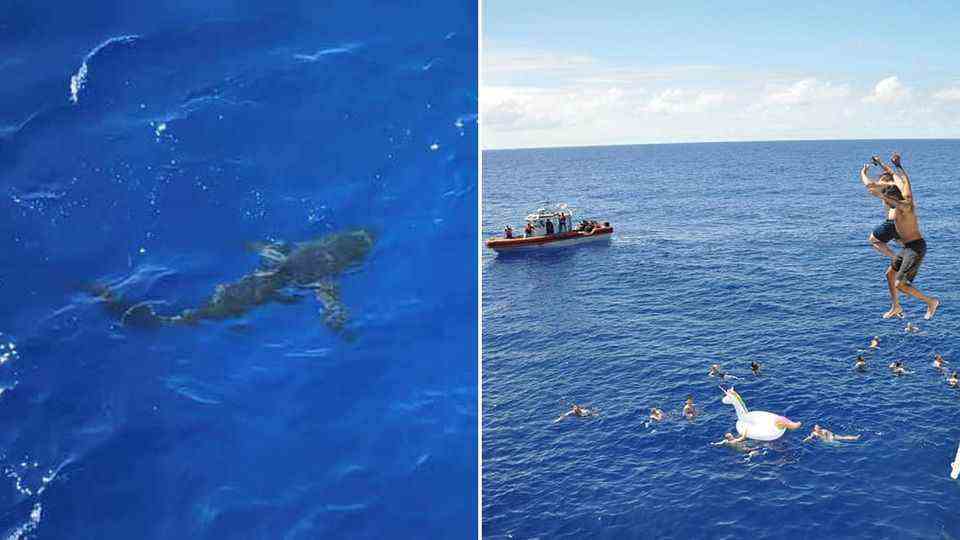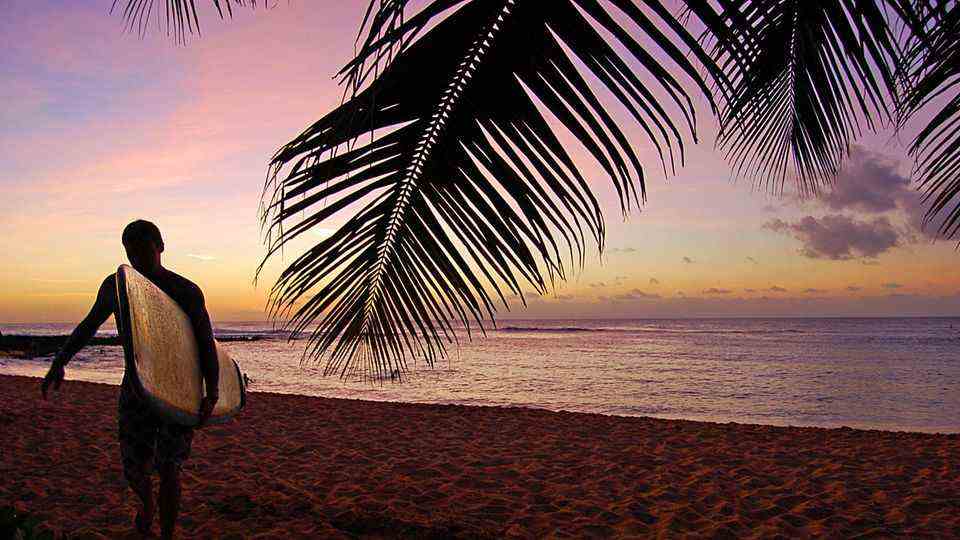island in the pacific
A few decades ago, the island state of Nauru was the richest country in the world. Then the bubble burst
The national flag of Nauru
© Rawf8 / Getty Images
There were no taxes, the population was awash with money: In the 1970s, Nauru was in heavenly conditions thanks to large deposits of raw materials. The country now lives in poverty. How could this happen?
You have to be well versed in geography to understand the name Nauru. Nauru is a tiny island in the Pacific Ocean, north-east of Australia, and at 21 square kilometers it is the third smallest country on earth. Only about 11,500 people live there. Not so long ago, the island state held an exposed position: in the 1970s, Nauru was considered the richest country in the world in terms of area.
The reason for this was the phosphate deposits discovered on the island at the beginning of the 20th century. These were first mined by the British colonial rulers and later by Australia. In 1968 Nauru gained independence. From then on, the mineral resources also belonged to the smallest republic in the world itself. The following years became an epoch of almost obscene prosperity on the island – which, however, only lasted for a short time.
Phosphate makes the island state of Nauru the richest country in the world
Oddly enough, Nauru owed its wealth to bird droppings. For thousands of years, millions of seabirds had left their dung there, and a chemical reaction and the tropical climate had turned it into calcium phosphate. “Nauru is an island of shit,” an Australian businessman reportedly once said. “But if you have business acumen, you can make quite a lot of bucks in this country real quick.” And that’s exactly what happened in Nauru after independence.
The British and Australians had previously enriched themselves with the treasures, now the islanders cashed in themselves. Phosphate, also known as phosphorus, is an indispensable raw material for mankind that cannot be replaced. It is needed above all for fertilizers, phosphate is an essential prerequisite for the growth of biological organisms of all kinds. The mineral is accordingly in demand all over the world – and the prices for it are correspondingly high. In the wake of the oil crisis in the 1970s, prices rose again significantly. Hardly anyone benefited from this as much as the island of Nauru.
Conditions like in Cockaigne
Gross domestic product in the island nation rose to around $20,000 per capita. Conditions in Nauru were like in the Land of Cockaigne: taxes were not levied, electricity, water and medical care were free. Most residents could afford several expensive cars at the same time. Those who didn’t want to work didn’t do it, and still bought villas and yachts – gladly also abroad, because the island soon became too small with the financial possibilities. The state financed the luxury life of the citizens with the income from phosphate mining.
Others had to do the dirty work: cheap workers were imported from China, so-called coolies. They slaved away in the phosphate mines and had to live in barracks, shielded from the locals. Life in the lap of luxury also had strange blossoms for the island population: dollar bills are said to have been used as toilet paper at some parties. The state itself also joined in the unbridled spending of money: corruption and mismanagement spread, Nauru invested in a national airline that was hardly used and in dubious real estate deals.

The big bang: Nauru falls into a deep crisis
Apparently nobody thought that the raw material would also run out one day – or nobody wanted to think so. At the time of independence in 1968, it was already clear that the deposits would only last for around 30 years. When the phosphate reserves were actually almost exhausted in the early 1990s, the whole country fell into the big hangover after the party. The investments had not paid off, instead the lavish lifestyle took its toll. Nauru fell into a deep crisis and was practically bankrupt within a short time.
The small country was just as overwhelmed by this situation as it had been by the sudden wealth. In the jungle of mafia, letterbox companies and obscure banking transactions, the government completely lost track, tens of millions were embezzled and disappeared without a trace. The state did everything it could to get some money: Nauru, for example, had Australia pay it to take in Afghan refugees who came Down Under in boats. The sale of passports was supposed to bring some money into the coffers, but Nauru also became a port of call for terrorists who wanted to create a new identity. Suddenly, what was once the world’s richest country suddenly found itself on the US list of “rogue states.” “Nauru cheats to survive,” summarizes author Luc Folliet.
Today Nauru is extremely poor
Nothing remains of the former wealth on Nauru today. The population is impoverished, most of them try to make a living from fishing. The average life expectancy is only 60 years. From the history of Nauru we can learn a lot about the economic problems in the globalized world: the exploitation of small countries by colonial powers on the one hand, but also the dangers that countries with large deposits of raw materials can get rich from quickly.
Sources: “Mirror” / Deutschlandfunk / “New York Times”



